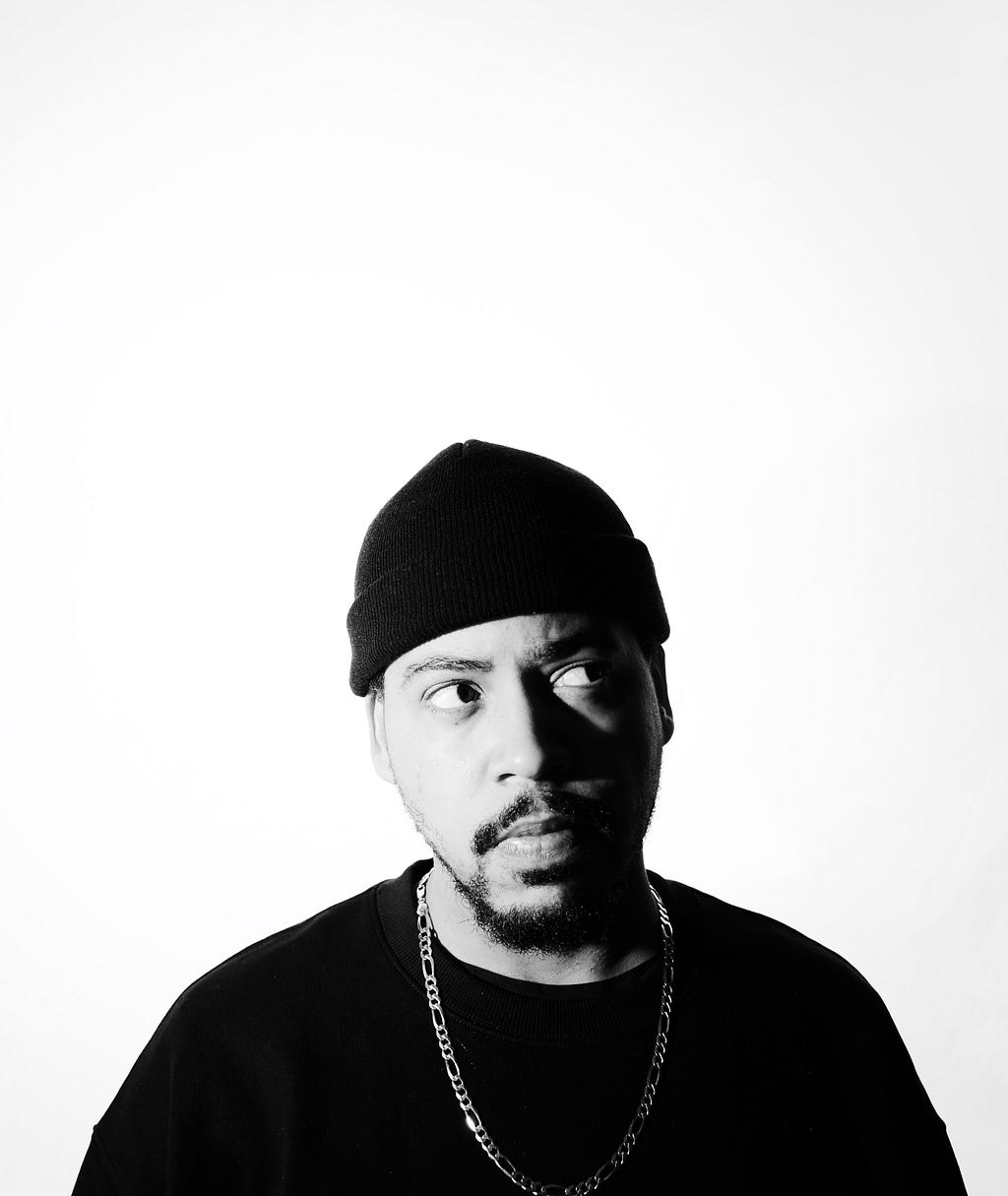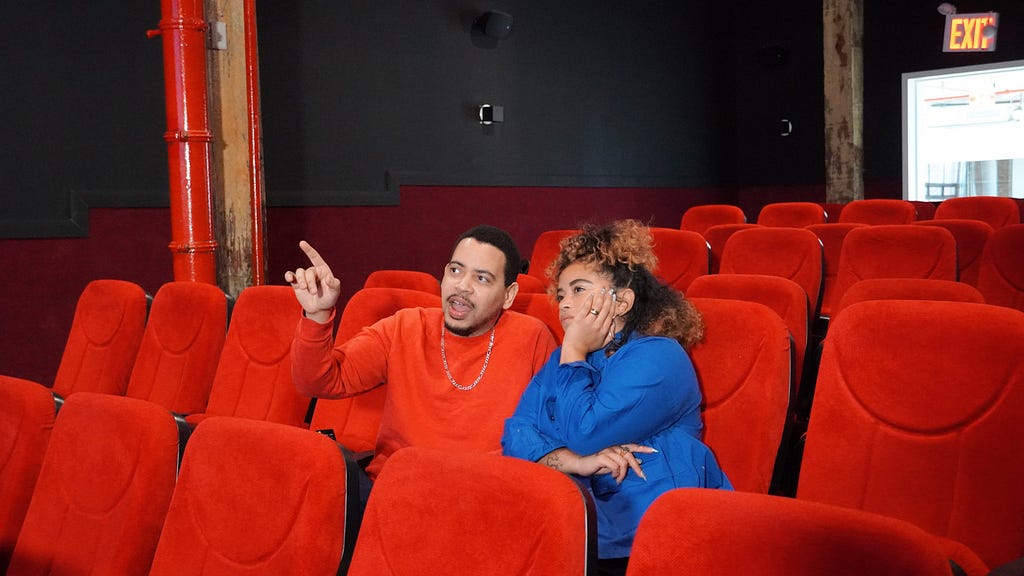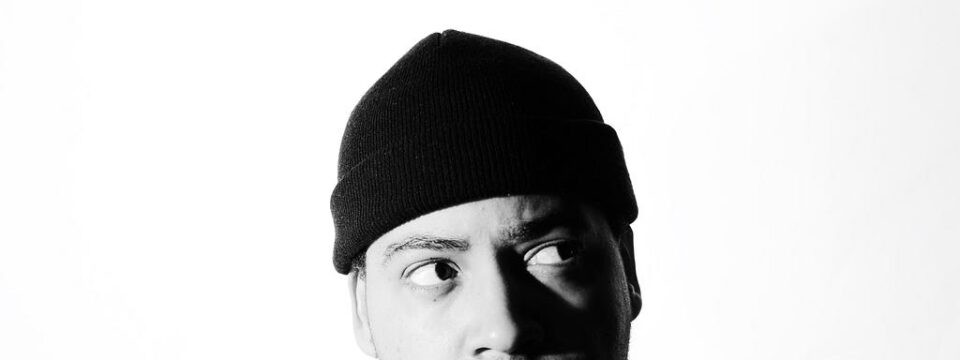Filmmakers Making A Social Impact: Why & How Filmmaker David-Georges Renaud Is Helping To Change Our World

Be journey-driven, and enjoy the discovery process. I’m full of anecdotes and sometimes I tend to rush the process and go straight into filming, editing, and delivering the final product. You want to focus on the details, it all connects in the end — trust me.
As a part of our series about “Filmmakers Making A Social Impact” I had the pleasure of interviewing David-Georges Renaud.
Dave is an artist, a filmmaker, and a citizen of many worlds, but when it comes to the filmmaking process and “moving pictures” themselves, he is an epicure.
Thank you so much for doing this interview with us! Before we dive in, our readers would love to get to know you a bit. Can you share your “backstory” that brought you to this career?
Of course, my origin story is set in Port-au-Prince, Haïti. Often, we never had electricity — I remember doing homework next to a kerosene lamp every night, which, let’s face it, was never an ideal situation. The best times were when my grandfather, a passionate ghostwriter, would gather my sister and me in his room to tell us stories, folklore, mystic tales, fables, and impart his wisdom from his life experiences — my love for storytelling started then. The three of us would take turns every night putting our own spin on well-known fairy tales. I always remember the beautiful moonlight seeping through his bedroom. Its bright light singled me out, shining discriminately, like a spotlight. My grandfather stoked my passion for storytelling and that passion illuminates my current path.
Life has always been somewhat surreal through my lenses. When I stepped into the creative world, I easily connected with like-minded talented individuals from across different fields, all of whom had a story to tell. After graduating with top marks from the New York Film Academy, I’ve worked on documentaries, indie music videos, spoofs, and short films — I have worn multiple hats during each project and always enjoyed the process, no matter how tedious. Most of my projects revolve around surrealism and holding up a mirror to society.
It has been said that our mistakes can be our greatest teachers. Can you share a story about the funniest mistake you made when you were first starting? Can you tell us what lesson you learned from that?
Continuity, I learned that the hard way. It was my first short film, “In Real Life,” which I wrote and directed. We had limited resources and very little time… almost no time… barely any time to shoot on location. In one particular scene, the protagonist left his house to catch a train — I never showed him leaving the house, it didn’t visually connect and felt rushed. I wasn’t able to use the same location for reshoots. I didn’t have that luxury, so I improvised. The interior of his house was a completely different structure than the exterior and it was quite noticeable. That oversight was a little embarrassing when I showed the class my final product, but now I am aware and always designate a set designer to be on the lookout so we can avoid this type of elementary error.
Who are some of the most interesting people you have interacted with? What was that like? Do you have any stories?
Musicians, especially when performing in a band, bond through feelings and music. Musicians communicate better through feeling the music than they do with words. My dad, who’s a singer/songwriter/guitarist, taught me that lesson first. The magic they create this way is nearly impossible to fabricate. Paul Beaubrun, who is a Roots artist and like a brother to me, once shared with me how his band improvises when playing live music. This particular instance was memorable because Paul’s son was joining the band for the very first time. The band members joyfully expressed how amazing it feels to follow each other. The rhythm and melody create a harmony that moves through the individual band members before it touches the audience. The final product seems to be rehearsed, but none of it is ever known prior to that moment. I’ve also had profound conversations with multidisciplinary artists who, like musicians, always offer an eccentric perspective to our projects and I always leave enlightened after a conversation.
Which people in history inspire you the most? Why?
Mavericks and disruptors like Muhammad Ali, Eddie Murphy, Steven Spielberg, Nikola Tesla, and my grandfather. They were able to shift the culture in a way that had never been done before. They were the stone that caused a rippling through the waters of history.
Let’s now shift to the main focus of our interview, how are you using your success to bring goodness to the world? Can you share with us the meaningful or exciting social impact causes you are working on right now?
During the George Floyd protests, I put together a short film, “Silence Kills”, where a group of Black Men is seen getting dressed in their finest attire, overlayed with an original spoken-word piece performed by a tormented poetess, hinting that the aforementioned Black Men were endangered species getting ready for their funerals. I’ve also written and directed a short, “Airplane Mode”, which focused on our obsessions with technology and how it can consume us to the point of irreversible consequence. I create with the intention of causing the world to self-reflect. Those who don’t learn from history are doomed to repeat it, right?
A current project of mine sheds some light on Haiti — I’m working on a documentary that highlights one of Haiti’s favorite sons, he gifts the world with his talents by playing Roots and spreading positivity. I also have a feature film in pre-production about Haitian folklore that I cannot wait to share with the world. I want to do right by my people.
Many of us have ideas, dreams, and passions, but never manifest it. But you did. Was there an “Aha Moment” that made you decide that you were actually going to step up and take action for this cause? What was that final trigger?
After graduating with my Master’s from Pratt, I found myself in a Wall Street office, surrounded by a cubicle, which made life feel bleak. I always knew I was a creative but didn’t know what the first step was. The first step was actually that, the first step — one day, I went for a walk during my lunch and found myself passing by The New York Film Academy. Curious about how or why I ended up there, I decided to entertain the universe — at the time, I was reading “The Alchemist”, so everything was a sign. Movies like “Get Out” and “Black Panther” were instrumental in my leap of faith because they demonstrated successful representations in front and behind the camera. As a lifelong cinephile, a particular film program at the academy caught my attention so I applied. After 12 weeks of intensive film knowledge and with the support of my sister and parents, I graduated at the top of my class. Inspired by people, culture, and creative design, I developed numerous independent projects including comedic shorts, web series, short films, and various other visual media. My storytelling is marked by its ability to inspire and inform the audience as it explores cultural and societal intersections. My goal is to continue to create films and visceral content that entertains, engages, and inspires.
Can you tell us a story about a particular individual who was impacted or helped by your cause?
A cousin of mine was always intrigued by still photography and after witnessing my courage in chasing my dreams, he tagged along for many of my projects and eventually decided to pursue studio photography. Though he still works with me on multiple projects, today, he has established his own sphere of influence and continues to make a positive impact in his community using his unique lens.
Are there three things that individuals, society or the government can do to support you in this effort?
Can’t ever have enough grants, programs, showings or exhibits.

What are your “5 things I wish someone told me when I first started” and why?
- Be journey-driven, and enjoy the discovery process.
I’m full of anecdotes and sometimes I tend to rush the process and go straight into filming, editing, and delivering the final product. You want to focus on the details, it all connects in the end — trust me.
2. You never lose, you learn.
Dim your ego, it comes into play a lot when working with others, you have to learn to be collaborative and complement others’ skills, you can’t make a film by yourself, that’s just bananas. It’s a team sport.
3. Celebrate small wins, celebrate ALL wins.
Take the time to really enjoy the process, it’s tedious work, and after unveiling the final product we tend to look for what’s next. Competition is healthy but learn to bask in your current celebratory moment.
4. Don’t force it, feel it. Be present.
Deadline sucks, we all know that and you don’t want to be rushed when creating art. If you’ve been working on a project for a while and the well is dry, take a break, get inspired, and come back fresh. If you force it, it shows.
5. No risk, no story.
Scribes have always been history’s storytellers. We have a responsibility to be truthful to the experiences and feelings we go through to make situations relatable and teachable. The more you experience, the greater the value of what you have to say.
If you could tell other young people one thing about why they should consider making a positive impact on our environment or society, like you, what would you tell them?
Although our present moment is all that we truly have, when you consider the lasting impact of previous generations, you realize that we have a responsibility for the tomorrow we may never live to see. Making a positive impact today is an investment in a better world for future generations. Please… stay consistent. Do not give up, create art for yourself first and enjoy the process. Your dreams have to scare you, once you eviscerate that self-doubt, you’ll realize that greatness is on the other side of fear.
We are very blessed that many other Social Impact Heroes read this column. Is there a person in the world, or in the US, whom you would like to collaborate with, and why? He or she might see this. 🙂
There are several actually, Jordan Peele, Edgar Wright, Wes Anderson, Tim Burton, Ryan Coogler, Issa Rae but most of all Donald Glover. I am a student of Donald Glover’s art, and I learn from each of his projects. I am able to decipher the tone, flavor, and message by carefully studying the framing, dialogue, allegories, and how every moving part complements the overall message. From the storytelling to the humor and the people he associates with. The wins and accolades speak for themselves. I can’t tell you how many times I’ve watched “This is America”, “Freaks and Geeks”, and “Atlanta” — specifically the Teddy Perkins episode, and that’s just to name a few.
Can you please give us your favorite “Life Lesson Quote”? Can you share how that was relevant to you in your life?
“Life is a tragedy for those who feel, and a comedy for those who think.”― La Bruyere
As a creative, my purpose has always been to disrupt the status quo, entertain, educate, challenge the norm, and reimagine conventions within entertainment. My primary goal is to contribute to the broadening spectrum of content that features people of color. I tell original stories that are relatable and highlight the power and potency of our minds, not only as people but also as storytellers.
How can our readers follow you online?
I’m @davedisrupts on Instagram/threads and from there you can find my affiliated links.
This was great, thank you so much for sharing your story and doing this with us. We wish you continued success!
Filmmakers Making A Social Impact: Why & How Filmmaker David-Georges Renaud Is Helping To Change… was originally published in Authority Magazine on Medium, where people are continuing the conversation by highlighting and responding to this story.
